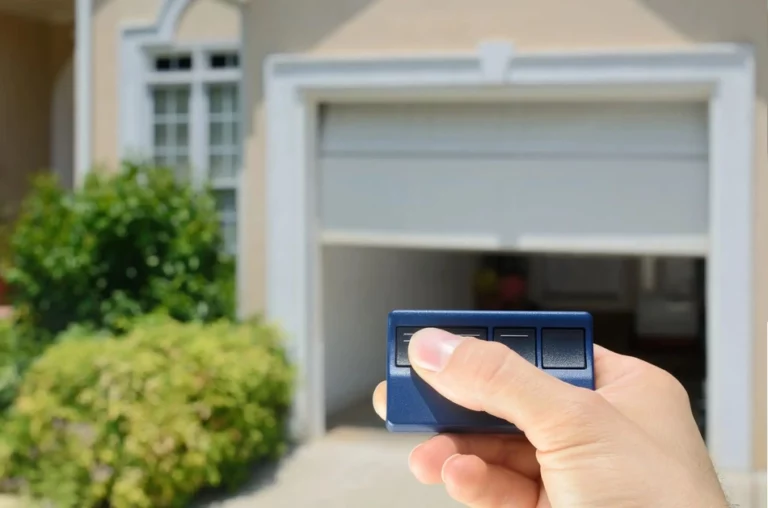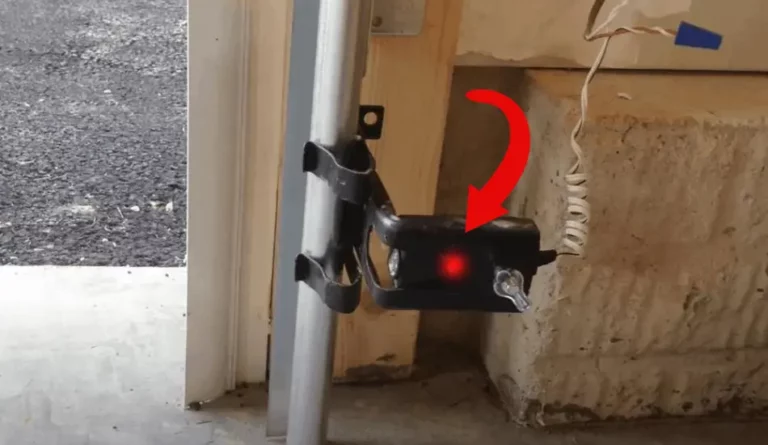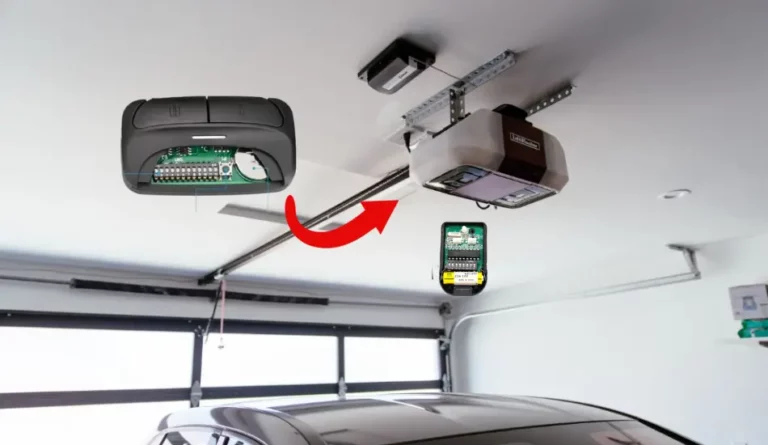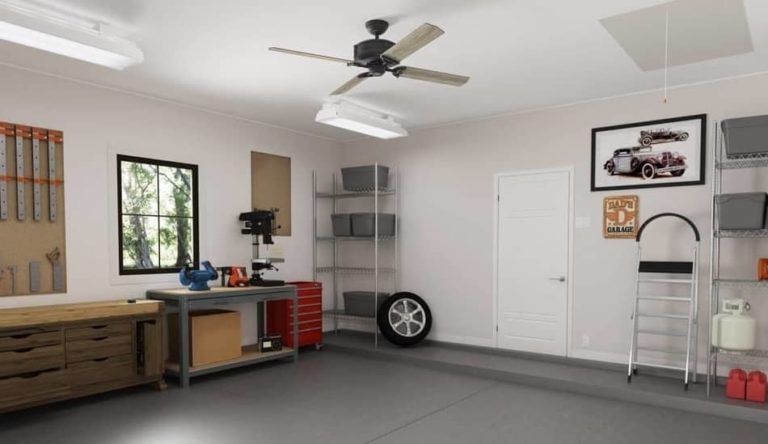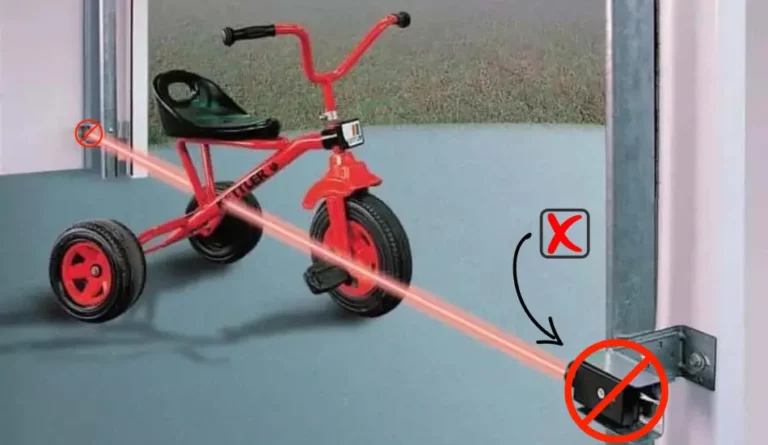Why Does My Garage Have Vents? (Explained)
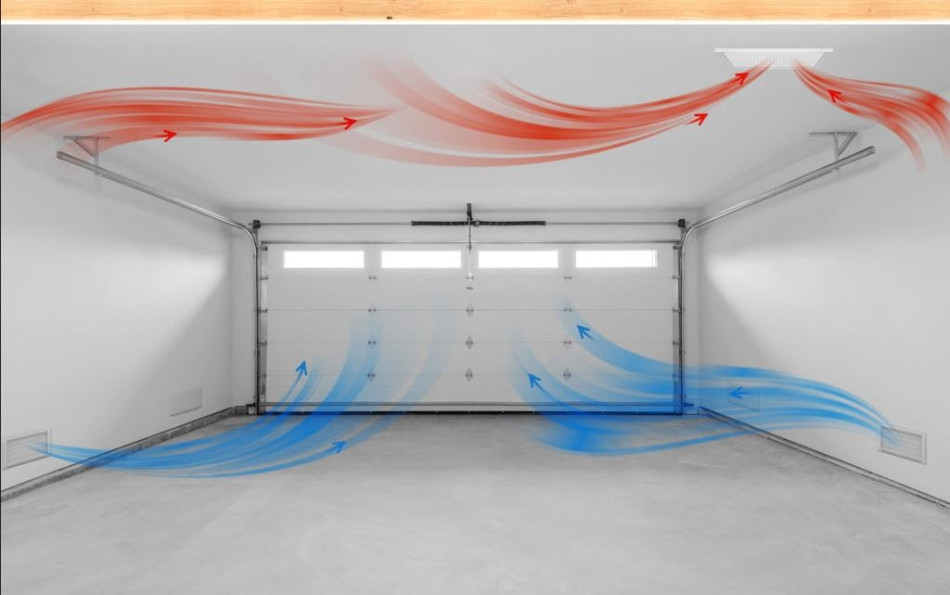
Those who have decided to build a garage within their house or reconstruct an old one must wonder whether it is necessary to have a vent system installed or not. The truth is that most building codes don’t say anything about garage vent requirements.
Considering that everything goes in favor of the fact that the garage should have ventilation, the homeowners are mostly left to their own conclusions about this matter. In this article, we will talk about whether ventilation is necessary for a garage or not.
Why Does My Garage Have Vents? Garages usually don’t require to have vents according to International Residential Code (IRC) because garages are not habitable spaces. Most garages have passive vents. However, if you have a hydrogen-generating appliance in the garage, you must install a vent system.
Regardless of whether the regulations require ventilation or not, it is good to have it in your garage for several reasons. Garages that have ventilation, have less moisture, are fresher and require much less maintenance. You never know whether you will use the garage as a space for entertainment, work, or an extra room in the future.
Table of Contents
Ventilation Is Not Required In Garages
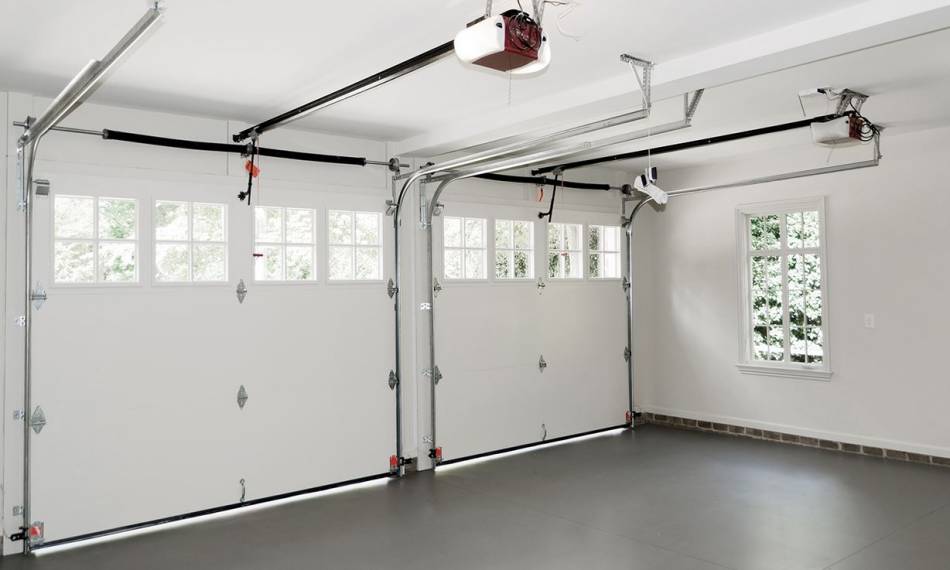
According to the International Residential Code (IRC), it is not required to have a ventilation system installed in a garage. It doesn’t say anywhere that ventilation is required by building codes or state laws. While it’s always wise to double-check any codes that apply to the area where you live before doing anything, you can be sure that ventilation is optional in garages in most states in America.
There are many reasons why this is so. However, you should know that if you opt for vents in your garage, you will have many advantages. Now that we have clarified that, we will look at why building codes do not prescribe a law on mandatory ventilation when it comes to home garages.
For those with basement garages, read: Pros and Cons Of A Basement Garage.
Why Building Codes Don’t Prescribe Ventilation?
1. Garages Do Not Fall Under Living Space
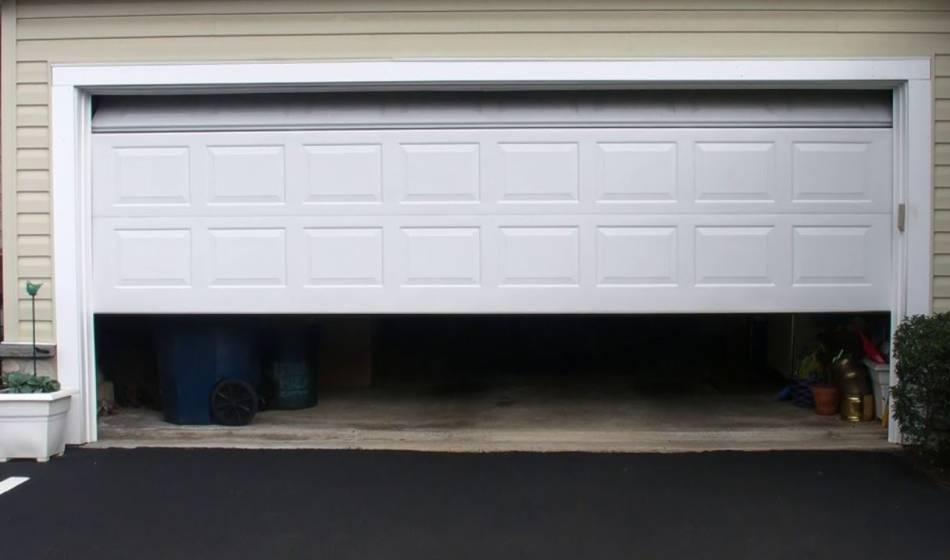
According to ‘Chapter 2 Definitions’ of the International Residential Code, ventilation is required in all rooms in the house that are considered living space, such as the kitchen, bedroom, living room, and kids’ room. However, that does not include a garage. A garage is a room where you don’t spend much time except parking your car.
That is why the regulations do not require that vents must be installed in the garage. If you just bought a house and noticed that the garage has vents, it does not mean that the previous owners had to install them. It is probably the case that the garage was used as a workshop.
Also, you should know that vents, even when building codes do not require it, are usually installed in rooms with high air humidity. However, garages are not in general moist places, so this is another reason why it is not mandatory to have vents in them.
2. Natural Ventilation Is Present In Garage
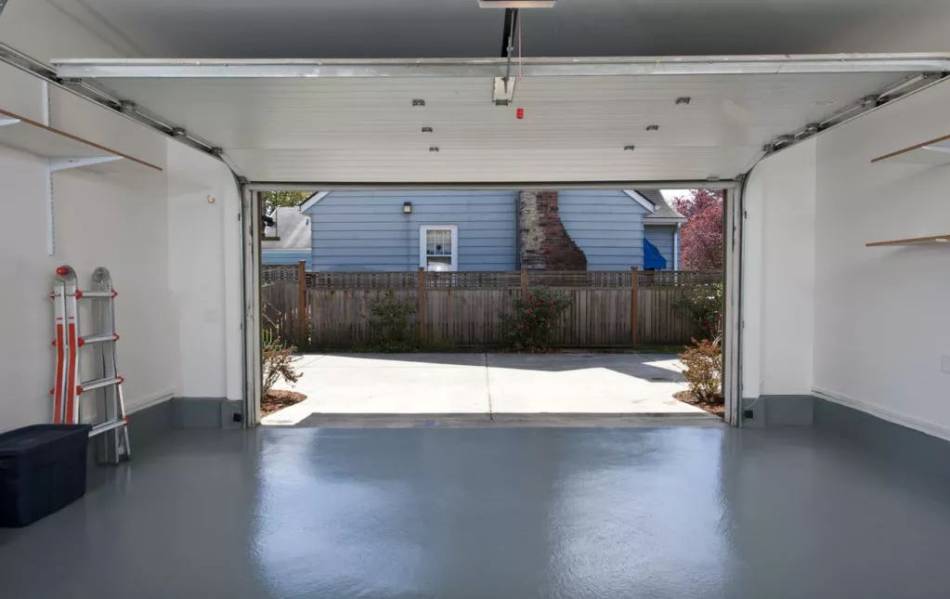
Garages generally have small openings on all sides, allowing air to flow through them. However, garage walls that do not have thermal insulation let in air from the outside, so an uninsulated garage is regularly naturally ventilated by itself, even when there are no vents.
Also, each garage has a large main door that opens a couple of times a day. A lot of fresh air enters the space by opening and closing these doors. In addition, most garages usually come with one window, which helps with ventilation. Most people have the habit of keeping that window at least slope open, which ensures natural ventilation of the space.
Related Article: How To Hide A Camera In The Garage? (6 Best Ways)
3. Garages Are Separated From House
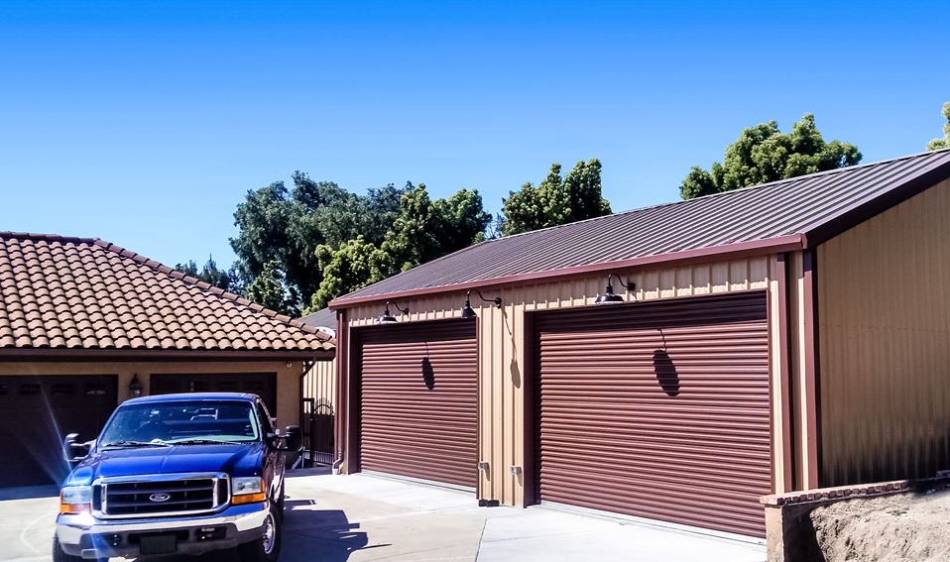
Section R302.5 of the International Residential Code stipulates that the garage must be a space separate from other rooms in the house where people stay on a daily basis. This is to prevent the poor-quality air from the garage not to have a negative impact on health. For this reason, garages are not considered part of the living space, and the assumption is that the lack of vents in the garage cannot affect the air quality in the home.
However, it is important to know that when the door from the garage leads to the hallway of the house, it is precisely determined what level of quality and what material it must be made of. The obligation is that the door has a fire-resistant coating and that it is made of solid wood.
The form of the ducts that go from the home to the garage is also precisely prescribed, with the addition that two-way air circulation through the ducts is prohibited.
4. Garages Require a Carbon Monoxide (CO) Detector
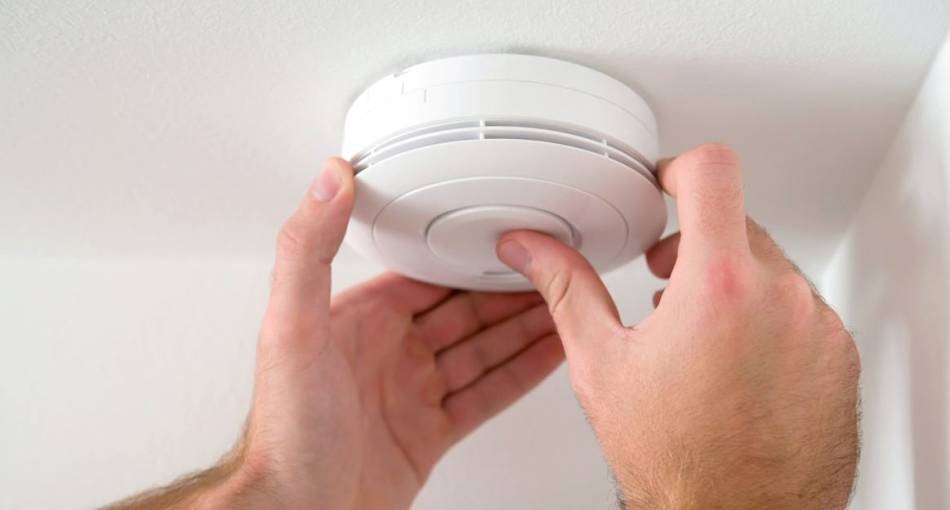
According to Section R315.2.1 of the IRC, it is also stated that homeowners need to have a carbon monoxide detector in the garage if the garage is connected to the house. Although everyone knows that car can create Carbon monoxide in a closed garage, this is an additional precaution to protect human health.
CO is a highly poisonous gas that is released into the air imperceptibly and can easily become fatal if someone stays in a garage for too long.
It is considered that the obligation to install a CO detector, along with natural ventilation, cancels the need for garage vents.
5. Garages Are Not Part Of HVAC System
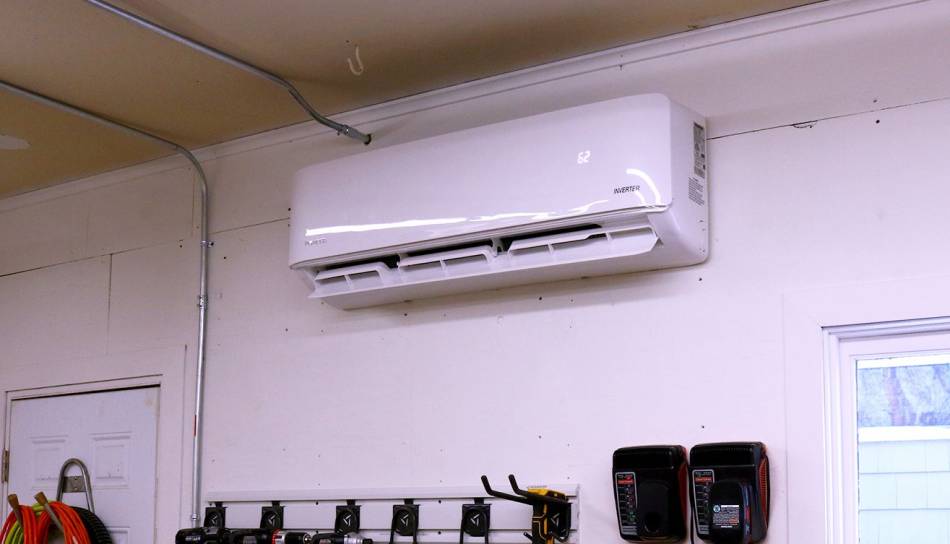
According to IRC, Section M1601.6 says that the home HVAC system must not be connected to the garage. The garage is the only room in the house for which the IRC stipulates that it cannot be connected to the central HAVC system. This means that when installing vents in the garage, you must not connect it to the ventilation, heating, and cooling system you have in the rest of your home.
Exception When Vent is Required In The Garage
There is an exception when the vent is required in a garage by code regulations. The vent is required when you have appliances running on hydrogen in the garage. This is defined by IRC in Section M1307.4. In such cases, the garage must have two additional openings, one 12 inches from the floor and the other 12 inches from the ceiling.
Also, the garage in which household appliances with hydrogen generation are stored cannot be larger than 850 square feet. This exception is part of the IRC, considering that hydrogen is a substance that can cause a fire and, in a short time, create extremely unfavorable conditions for human health.
Garages With Passive Vents
Most garages usually have passive vents installed on their walls. Through passive vents, there is a simple exchange of air from outside with the possibility of establishing control over ventilation. The reason for this is that the garage is not a living space, people do not spend much time in it. In the garage, it is important to ensure any kind of airflow, which is a job that passive vents do quite well.
What Is Good About Garage Vents?
Having good ventilation in the house ensures high air quality, which is very important for the health of the people who live in it. This conclusion applies to all rooms in the house, including the garage. What benefits can a garage vent bring? Check it out below.
- Cooling Costs – At first glance, it doesn’t matter if the garage is hot in the summer when you don’t spend much time in it. But you should know that the heat from one room to another can also be transferred through the walls. If the garage is regularly ventilated through the vents, it will never be so hot that the heat is transferred to the living space in the house. That means that your electricity bills for cooling will be lower.
- Repurposing – If you have a large driveway in front of the house, it may happen that you will want to transform the garage into an additional living space. Playroom for children, workshop, or office. When such a thing happens, you will have much less hassle if you have installed ventilation in the garage during its construction.
- Water heater – You must also have a quality vent system installed if you have a water heater in the garage. A vent with an exhaust fan is recommended. This is because the water heater emits a lot of heat during operation.
- Vehicle fumes – A vent in the garage is good protection against toxic fumes emitted by the car, which can seriously harm your health. Quality ventilation in the garage will prevent the accumulation of toxic gases.
If you have sensors in your garage, you might be interested to read How Do Garage Door Sensors Work?
When Do I Call A Professional?
After you decide to install a ventilation system in the garage, you should first think about what kind of system would suit you best and what you can afford. Then you need to find a local expert to install the ventilation because it is not a job you should do alone.
If you can’t decide which ventilation system to choose, it’s a good idea to consult with the building inspector in your county.
In addition to the fact that the building inspector can tell you which is the best option for you, he will certainly be able to refer you to a person who can perform the ventilation installation job well.
Final Thoughts
Unless you have household appliances with hydrogen generation in the garage, according to building codes, you are not obliged to install vents in your garage. However, it is recommended that you install ventilation in the garage if your budget allows it because it represents additional security for you and your family.
Also, the vents in the garage may one day come in handy if you decide to transform it into an additional living space. When you decide to install vents in the garage, it is recommended to ask for advice from the building inspector and hire a professional for the installation work.



